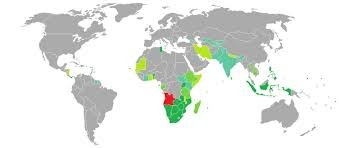What is Customs and Border Protection for US Visa

When traveling to the United States, it’s essential to understand the role of Customs and Border Protection (CBP) in the immigration process, especially when applying for a US visa. CBP, which operates under the Department of Homeland Security (DHS), is responsible for securing the nation’s borders and facilitating lawful international travel. For those applying for a US visa, understanding what is Customs and Border Protection for US visa, and its role in ensuring compliance with immigration laws, is critical.
Overview of Customs and Border Protection (CBP)
Customs and Border Protection (CBP) is a federal law enforcement agency that manages the borders of the United States. Its primary objective is to safeguard the country by regulating and overseeing the movement of individuals, goods, and vehicles across the border. The CBP officers stationed at various entry points, such as airports, seaports, and land borders, ensure that travelers entering the U.S. comply with visa regulations and other legal requirements.
CBP not only inspects incoming travelers but also monitors goods being imported to ensure they meet U.S. standards. Whether you’re arriving for business, tourism, or work, CBP plays a pivotal role in ensuring that your visa and travel documents are in order.
Role of CBP in the US Visa Process
For those unfamiliar with what is Customs and Border Protection for US visa, it is crucial to know that CBP is responsible for verifying your eligibility to enter the U.S. This means that even if you have a valid visa, CBP officers at the port of entry will determine if you are permitted to enter the country. They will review your documents, ask questions about your travel purpose, and confirm that your visa complies with your stated travel intentions.
If there are any discrepancies in your documentation or if the officer has concerns, you may be subject to further screening or denied entry. CBP officers have the authority to revoke or cancel a visa if they find that an individual does not meet the requirements for entry into the U.S.
CBP’s Role in Protecting U.S. Borders
CBP plays a vital role in safeguarding U.S. borders by preventing illegal immigration, smuggling, and other illicit activities. With advanced technologies and extensive training, CBP officers are equipped to identify risks associated with travelers or goods entering the country. They use various tools, such as facial recognition systems and biometric data, to verify travelers’ identities and detect any potential threats.
For travelers arriving in the U.S. on a visa, this added security ensures that only those with legitimate reasons for entering the country are allowed in. Travelers with improper documentation or those suspected of unlawful intent are intercepted by CBP.
How CBP Inspections Work
When arriving at a U.S. port of entry, you will undergo an inspection by CBP officers. This process involves a review of your travel documents, including your visa, passport, and any other relevant paperwork, such as a visa waiver form or ESTA authorization for eligible travelers. The officer may ask you questions related to the purpose of your visit, the duration of your stay, and your travel plans while in the country.
In most cases, if everything is in order, the CBP officer will grant you entry into the U.S. However, if there are concerns about your eligibility, your documents, or your intentions, CBP officers may subject you to secondary inspection. During secondary inspection, officers will conduct a more detailed review of your background, ask additional questions, and verify your documentation.
It’s important to note that entry into the U.S. is not guaranteed, even with a valid visa. CBP officers have the discretion to deny entry if they believe that allowing you into the country poses a risk.
Traveler Tips for CBP Processing
If you’re traveling to the U.S. on a visa, it’s important to prepare for your interaction with CBP officers. Here are a few tips to help ensure a smooth entry process:
- Have Your Documents Ready: Ensure that you have your passport, visa, and any supporting documents readily available for review. Make sure your documents are valid and up-to-date.
- Be Honest and Clear: CBP officers will ask questions to verify your intentions for entering the U.S. Answer questions honestly and provide clear, concise information about your travel purpose.
- Understand Your Visa Type: Familiarize yourself with the specific requirements of your visa, including any restrictions on activities you can engage in while in the U.S. For example, a tourist visa (B-2) prohibits work or long-term stays.
- Avoid Carrying Prohibited Items: CBP enforces strict regulations on what travelers can bring into the U.S. Be sure not to carry any prohibited or restricted items, such as certain foods, plants, or large amounts of cash, unless declared.
CBP’s Trusted Traveler Programs
For frequent travelers, CBP offers Trusted Traveler Programs such as Global Entry and NEXUS. These programs expedite the entry process by allowing pre-approved travelers to use dedicated lanes and kiosks for faster processing. Trusted Traveler members undergo a rigorous background check and interview process before being accepted into the program. This allows them to bypass long lines and reduce the likelihood of secondary inspections, making travel to and from the U.S. more efficient.
Consequences of Violating CBP Regulations
Violating CBP regulations can lead to serious consequences, including visa cancellation, deportation, and even permanent bans from entering the U.S. It is essential to follow all CBP rules and regulations, including adhering to the conditions of your visa. For example, overstaying your visa or engaging in unauthorized employment can lead to removal proceedings and future visa ineligibility. RENEW USA VISA
Conclusion
Understanding what is Customs and Border Protection for US visa is essential for anyone planning to travel to the United States. CBP is responsible for ensuring that individuals entering the country comply with immigration laws, and they have the authority to deny entry if there are concerns about a traveler’s intentions or documentation. By being prepared, understanding the inspection process, and following CBP regulations, travelers can help ensure a smooth and successful entry into the U.S.
